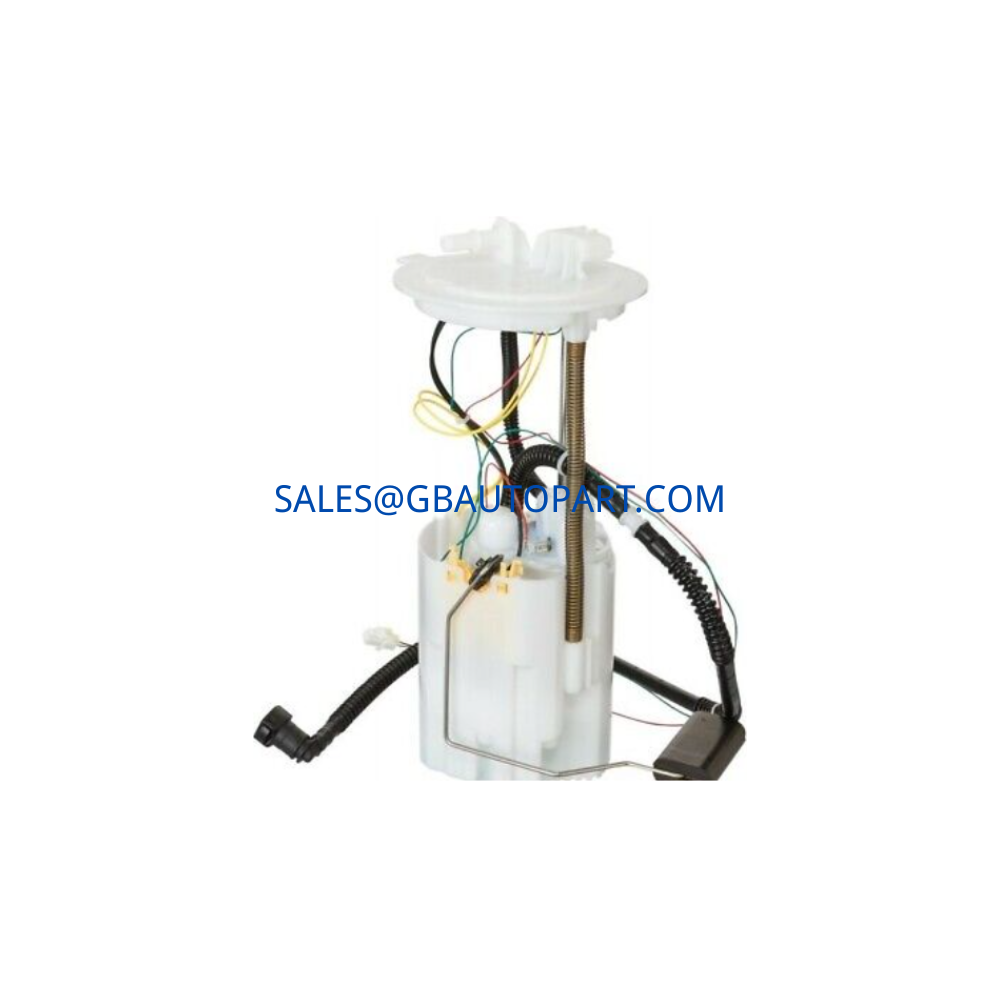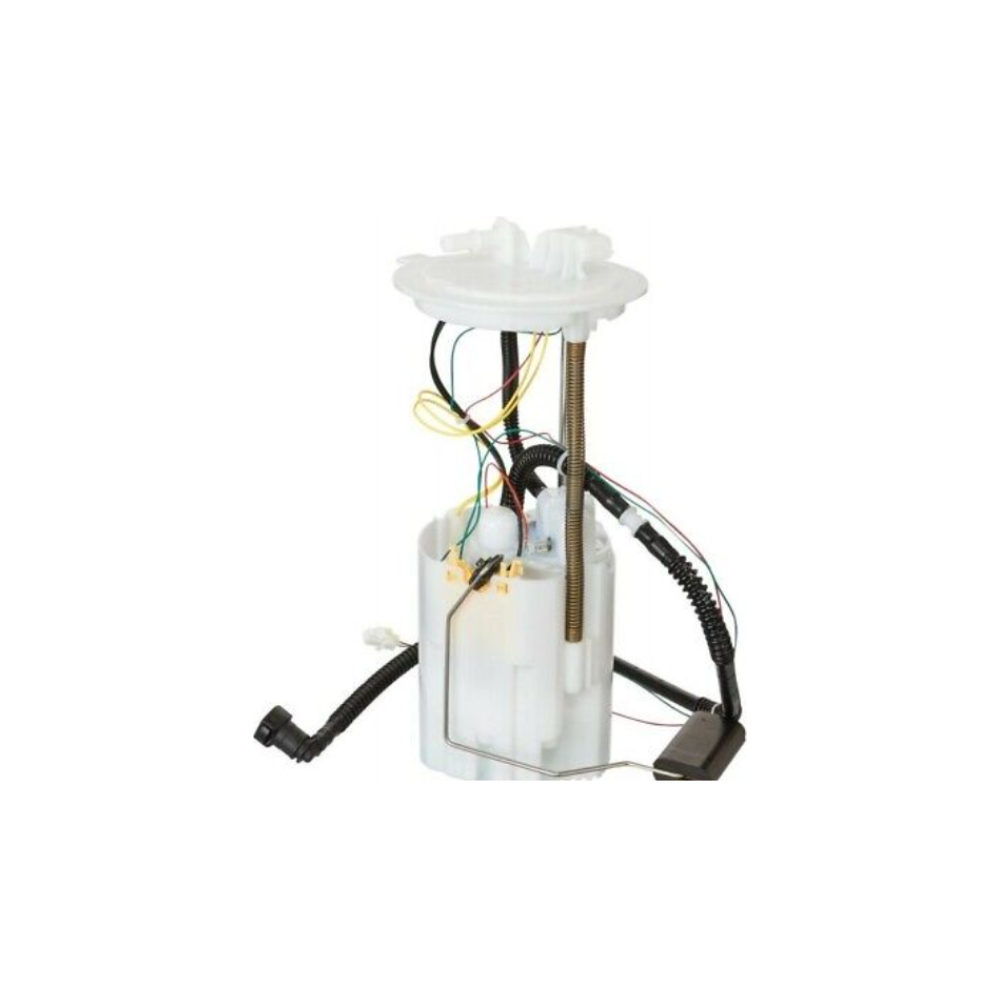
Understanding Fuel Pump Assembly 17040-4BA0C for Nissan Rogue 2014-2020: An Introduction
For owners of the Nissan Rogue (2.5L and 2.0L models) manufactured between 2014 and 2020, and for automotive service professionals, the fuel pump assembly, specifically identified by part number 17040-4BA0C, is a truly vital component. This complex unit is responsible for delivering a consistent and precise supply of fuel from the tank to the engine, maintaining the correct pressure for optimal combustion. Understanding its intricate function, recognizing symptoms of failure, and knowing how to source a reliable replacement for the 17040-4BA0C are essential for ensuring your Rogue’s dependable performance, fuel efficiency, and long-term engine health.
Modern vehicles rely on sophisticated electronic fuel injection systems that demand a precise and uninterrupted flow of fuel. The 17040-4BA0C fuel pump assembly sits at the heart of this system, working tirelessly to pull fuel from the tank and deliver it under pressure to the engine. A malfunction in this assembly can lead to various driveability issues, from difficulty starting and engine hesitation to complete vehicle breakdown. This article will thoroughly explore the specifics of this crucial component, highlighting its importance in the Nissan Rogue’s fuel delivery system and providing valuable insights for ensuring its proper function and maintenance.
Key Characteristics and Importance of Fuel Pump Assembly 17040-4BA0C

The 17040-4BA0C fuel pump assembly for the Nissan Rogue (2014-2020, 2.5L & 2.0L) is a sophisticated, integrated unit designed to manage the entire fuel delivery process from the tank.
Core Function: Delivering Fuel Under Pressure
The primary role of the 17040-4BA0C is to ensure a continuous and pressurized supply of fuel to the engine’s fuel injectors.
- Fuel Siphoning and Pumping: The electric fuel pump motor within the assembly actively siphons fuel from the bottom of the fuel tank. This fuel is then pumped through a series of components to the engine at a specific, regulated pressure. This consistent pressure is crucial for the precise operation of modern fuel injectors.
- Pressure Regulation: The 17040-4BA0C assembly typically includes a fuel pressure regulator. This component maintains a constant fuel pressure within the fuel rail, regardless of engine load or speed. It bleeds off excess fuel back to the tank, ensuring the injectors receive fuel at the precise pressure needed for optimal atomization and combustion.
- Fuel Filtering: An integrated fuel filter is a key part of the 17040-4BA0C. This filter traps contaminants, such as dirt, rust, and debris, preventing them from reaching and potentially damaging the sensitive fuel injectors and other high-precision engine components. This protection is vital for engine longevity.
Integrated Design and Components
The 17040-4BA0C is more than just a pump; it’s a comprehensive module incorporating several critical components:
- Electric Pump Motor: This is the heart of the assembly, responsible for drawing and pressurizing the fuel. It’s designed for continuous operation and durability within the fuel environment.
- Fuel Level Sending Unit: This unit, often a float arm connected to a potentiometer, measures the amount of fuel in the tank and sends this information to the vehicle’s fuel gauge on the dashboard. This allows the driver to monitor fuel levels accurately.
- Fuel Strainer/Pre-filter: Positioned at the inlet of the pump, this coarse filter prevents larger debris from entering and damaging the pump itself.
- Housing and Connectors: The entire assembly is housed in a durable plastic module designed to fit precisely into the fuel tank opening. It includes integrated electrical connectors and fuel line ports for secure and leak-free connections.
- Pulsation Damper: Some assemblies may include a pulsation damper to smooth out fuel flow and reduce noise caused by the pump’s operation.
Impact on Vehicle Performance and Reliability
A perfectly functioning 17040-4BA0C fuel pump assembly is paramount for your Nissan Rogue’s overall performance, reliability, and safety.
- Consistent Engine Performance: A steady and correctly pressurized fuel supply ensures consistent engine power, smooth acceleration, and responsive throttle feel. Any interruption can lead to hesitation, misfires, or a lack of power.
- Optimal Fuel Efficiency: Precise fuel delivery, facilitated by the 17040-4BA0C, allows the engine to maintain the ideal air-fuel ratio, leading to optimal fuel economy and reduced emissions.
- Reliable Starting: Adequate fuel pressure is essential for reliable engine starting. A failing pump might cause extended cranking times or a complete no-start condition.
- Protection of Fuel System: By filtering contaminants and maintaining correct pressure, the assembly protects the entire fuel system, especially expensive components like fuel injectors, from premature wear and damage.
Applications in the Automotive Precision Industrial Model

The Fuel Pump Assembly 17040-4BA0C for the Nissan Rogue (2014-2020, 2.5L & 2.0L) stands as a prime illustration of a component within the automotive precision industrial model. This paradigm emphasizes highly integrated, precisely engineered systems that are critical for overall vehicle functionality, efficiency, and environmental compliance.
- System Integration and Modularity: The 17040-4BA0C is a quintessential modular component. Instead of separate pump, filter, and sender units, this assembly integrates all these functions into a single, compact unit that drops directly into the fuel tank. This design simplifies installation, reduces potential leak points, and optimizes space, reflecting a key principle of modern automotive manufacturing for efficiency and ease of assembly.
- Precision Fuel Delivery and Pressure Regulation: Modern engines, particularly those with gasoline direct injection (GDI) like some Rogue models, require extremely precise fuel pressure and flow. The electric motor within the 17040-4BA0C must operate with high reliability to deliver fuel consistently, while the integrated pressure regulator maintains system pressure within very tight tolerances (e.g., within 5-10 PSI). This precision ensures optimal fuel atomization for efficient combustion and reduced emissions.
- Integrated Filtration for Component Protection: The fuel filter element within the 17040-4BA0C is not merely an afterthought. It is specifically designed with a precise micron rating to capture even microscopic particles that could damage the delicate fuel injectors or clog the fuel rail. This integrated, high-efficiency filtration is critical for the longevity of the entire fuel system, especially given the tight tolerances of modern injection components.
- Corrosion and Fuel Compatibility: The materials used in the construction of the 17040-4BA0C (plastics, metals, seals, electrical components) are rigorously tested for their resistance to various fuel types, including ethanol blends, and to the corrosive environment within a fuel tank. This ensures long-term durability and prevents material degradation that could lead to leaks or component failure, adhering to strict automotive safety and longevity standards.
- Diagnostic Feedback and ECU Communication: A failing 17040-4BA0C can be detected by the vehicle’s Engine Control Unit (ECU) through various sensors, such as the fuel pressure sensor. Malfunctions often trigger diagnostic trouble codes (DTCs) and illuminate the “Check Engine” light. This robust diagnostic capability is a hallmark of the precision industrial model, allowing technicians to identify and address fuel delivery issues promptly, preventing more severe engine problems.
The reliable starting, smooth running, and efficient operation of the Nissan Rogue are fundamentally dependent on the consistent and precise performance of the 17040-4BA0C fuel pump assembly.
Delivering Value to Automotive Service Product Users
For automotive service professionals, a comprehensive understanding of the Fuel Pump Assembly 17040-4BA0C is indispensable for providing effective, preventative, and value-driven services to Nissan Rogue (2014-2020, 2.5L & 2.0L) owners.
- Accurate Diagnosis of Fuel Delivery Issues: Knowledge of common symptoms associated with a failing 17040-4BA0C (e.g., extended cranking, hard starting, engine hesitation, loss of power under acceleration, whistling or buzzing from the fuel tank, engine stalling, or a “Check Engine” light with fuel pressure-related DTCs) enables technicians to quickly and accurately diagnose fuel delivery problems. This precision avoids guesswork, reduces diagnostic time, and ensures the correct component is replaced.
- Ensuring Reliable Fuel System Repairs: When fuel pump assembly replacement is necessary, sourcing genuine or high-quality aftermarket 17040-4BA0C units is paramount. Service providers who prioritize quality parts ensure the longevity and reliability of the entire fuel system, significantly reducing costly comebacks and building client trust. This also minimizes the risk of a premature secondary failure.
- Expert Installation and Safety Protocols: Replacing an in-tank fuel pump assembly like the 17040-4BA0C requires strict adherence to safety protocols, including properly relieving fuel pressure, safely handling flammable fuel, and ensuring correct reinstallation of seals and electrical connections. Workshops with skilled technicians who follow these best practices ensure optimal fuel system integrity and prevent dangerous fuel leaks or operational issues.
- Educating Clients on Preventative Maintenance: Professionals can educate Nissan Rogue owners on the vital role of the fuel pump assembly and the consequences of operating with a failing unit. Explaining how proper fuel levels can extend pump life (avoiding consistently running on a low tank) and the importance of addressing symptoms promptly empowers clients to make informed decisions about their vehicle’s critical fuel system.
- Transparent Cost-Benefit Analysis: By clearly outlining the benefits of investing in a quality 17040-4BA0C replacement (e.g., restored performance, reliable starting, extended engine life) versus the risks of neglecting symptoms (e.g., complete breakdown, damage to other fuel system components), service providers can justify the cost of the service, building trust and demonstrating a commitment to vehicle health and safety.
By mastering the knowledge and service related to the 17040-4BA0C fuel pump assembly, automotive service providers can position themselves as trusted experts capable of handling critical fuel system repairs, ultimately delivering immense value and peace of mind to their customers.
Ensuring Authenticity and Correctness of Fuel Pump Assembly 17040-4BA0C
When a replacement for the Fuel Pump Assembly 17040-4BA0C is needed for your Nissan Rogue (2.5L or 2.0L, 2014-2020), verifying its authenticity and correctness is absolutely critical. This component is integral to your vehicle’s operation, and using an incorrect or substandard assembly can lead to significant performance issues, reliability problems, and even potential safety hazards.
- Verify Part Number Meticulously: Always confirm that the part number is precisely 17040-4BA0C. Even slight variations in numbers can indicate a different fitment, fuel pressure specification, electrical connector type, or fuel level sender calibration, making it incompatible with your Nissan Rogue and potentially causing incorrect fuel gauge readings or improper engine operation.
- Cross-Reference with VIN: Provide your Nissan Rogue’s full Vehicle Identification Number (VIN) to the parts supplier or dealership. The VIN ensures precise compatibility with your specific vehicle’s engine size (2.5L or 2.0L), model year (2014-2020), and any regional or optional package variations, as fuel pump assembly specifications can differ.
- Purchase from Reputable Sources: Acquire 17040-4BA0C fuel pump assemblies only from authorized Nissan dealerships, well-established automotive parts distributors specializing in fuel system components, or highly trusted independent auto parts stores known for carrying quality brands. These sources are most likely to supply genuine OEM parts or reputable aftermarket assemblies that meet or exceed original equipment specifications.
- Inspect Packaging and Markings: Authentic new 17040-4BA0C fuel pump assemblies will typically arrive in Nissan-branded packaging with clear labels, part numbers, and sometimes manufacturing dates or serial numbers. Visually inspect the assembly itself for robust construction, securely integrated components (pump motor, sender, filter), proper electrical connections, and quality sealing surfaces. Be highly suspicious of plain, generic packaging, blurry printing on labels, or unusually low prices.
- Beware of “Too Good to Be True” Pricing: If the price for a 17040-4BA0C fuel pump assembly seems suspiciously low compared to market averages, exercise extreme caution. Counterfeit or low-quality assemblies may use inferior pump motors that fail prematurely, inaccurate fuel level senders, or substandard filter media. These can lead to insufficient fuel pressure, incorrect fuel gauge readings, recurring engine problems, or even a complete vehicle breakdown.
Diligent verification of the authenticity and correctness of the 17040-4BA0C fuel pump assembly is an essential step in safeguarding your Nissan Rogue’s fuel system and ensuring its long-term reliability and safe operation.
Tips for Sourcing Fuel Pump Assembly 17040-4BA0C
Sourcing the correct and high-quality Fuel Pump Assembly 17040-4BA0C for your Nissan Rogue (2014-2020, 2.5L or 2.0L) is paramount for restoring its reliable performance. Here are the most reliable channels:
- Authorized Nissan Dealerships: This is the most secure avenue for obtaining a genuine OEM 17040-4BA0C. Dealerships have direct access to Nissan’s parts inventory, can accurately verify compatibility using your VIN, and provide a full manufacturer’s warranty. While potentially a more premium investment, it guarantees the highest quality, perfect fit, and proper calibration designed specifically for your vehicle.
- Reputable Online Automotive Parts Retailers: Many large, well-established online platforms specialize in automotive parts, including fuel system components. When using these, ensure the vendor has a strong reputation, clear return policies, and positive customer reviews. Always use your full VIN to confirm that the 17040-4BA0C (or a verified equivalent from a trusted aftermarket brand) is indeed the correct part for your specific Rogue model and engine. Look for well-known fuel system component manufacturers.
- Well-Stocked Local Auto Parts Stores: Many brick-and-mortar auto parts stores carry a wide range of common replacement parts, including high-quality aftermarket equivalents to the 17040-4BA0C. Their knowledgeable staff can often assist with cross-referencing and immediate availability, which is particularly useful for urgent repairs. Inquire about the brand’s reputation, product quality, and warranty terms.
- Specialty Fuel System Suppliers: Some suppliers specialize specifically in automotive fuel system components. They might offer a wider selection of premium aftermarket brands for the 17040-4BA0C that are known to meet or exceed OEM specifications. Research the brands they carry for quality assurance and proven performance in fuel delivery.
- Professional Auto Repair Shops: If your vehicle is already at a professional repair shop for diagnosis, they typically have established relationships with reliable parts suppliers. They can source the correct 17040-4BA0C and handle the installation, ensuring the repair is done correctly and safely, which is critical given the nature of fuel system work.
Always insist on a warranty for the 17040-4BA0C and meticulously keep detailed records of your purchase, including part numbers, supplier information, and the date of purchase. This protects your investment and assists with any future claims or troubleshooting, providing you with peace of mind.
Conclusion
The Fuel Pump Assembly 17040-4BA0C is an undeniably critical component for the reliable operation of your Nissan Rogue (2014-2020, 2.5L or 2.0L). Its consistent delivery of clean, pressurized fuel is fundamental to optimal engine performance, fuel efficiency, and the long-term health of your vehicle. For Rogue owners and dedicated automotive service professionals, understanding the vital role of this assembly, recognizing the signs of its potential failure, and committing to timely replacement with genuine or high-quality parts are non-negotiable for dependable driving. By prioritizing a reliable 17040-4BA0C, you ensure your Nissan Rogue continues to run smoothly, powerfully, and safely for all your journeys.
FAQ
Q1: What are the common symptoms of a failing Fuel Pump Assembly 17040-4BA0C in a Nissan Rogue? A1: Common signs include prolonged cranking before the engine starts, hard starting when the engine is warm, a sudden loss of power during acceleration, engine stalling at high speeds or during turns, a whining noise from the fuel tank, or a “Check Engine” light illuminated with fuel pressure-related trouble codes.
Q2: Can driving on a consistently low fuel tank damage the 17040-4BA0C fuel pump assembly? A2: Yes, consistently driving with very low fuel levels can potentially shorten the lifespan of the 17040-4BA0C. The fuel in the tank helps to cool and lubricate the electric fuel pump motor. Running on empty or near empty can cause the pump to overheat and wear out prematurely.
Q3: Is replacing the 17040-4BA0C a DIY task for a Nissan Rogue owner? A3: Replacing the 17040-4BA0C fuel pump assembly, which is typically located inside the fuel tank, is a complex and potentially dangerous task due to the presence of highly flammable fuel. It involves relieving fuel pressure, safely disconnecting fuel lines and electrical connectors, and often removing interior components to access the tank. Professional installation is highly recommended to ensure safety and proper function.
Q4: How does a faulty 17040-4BA0C impact fuel economy? A4: A failing 17040-4BA0C can lead to inconsistent fuel pressure or flow, forcing the engine’s computer to compensate, which often results in an improper air-fuel mixture. This inefficiency directly leads to reduced fuel economy as the engine may consume more fuel than necessary to maintain performance.
Q5: Should I replace anything else when replacing the 17040-4BA0C fuel pump assembly? A5: When replacing the 17040-4BA0C, it’s crucial to also replace the fuel tank sealing O-ring or gasket to prevent leaks. Additionally, consider inspecting the fuel lines for any signs of wear or damage. Since the fuel filter is often integrated into the assembly, replacing the entire unit ensures you also get a new filter.


